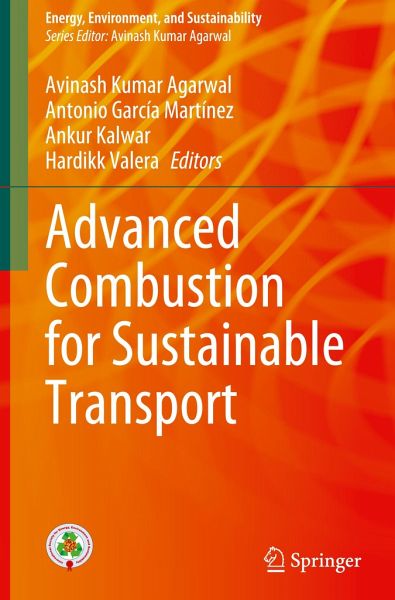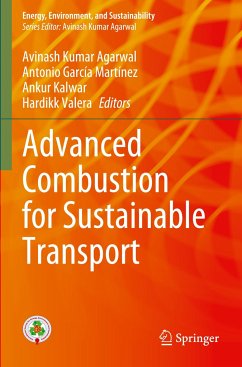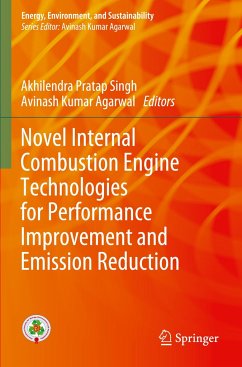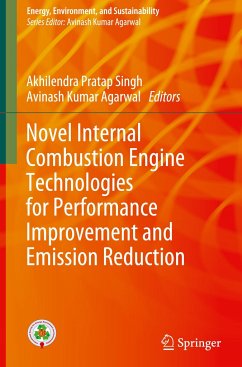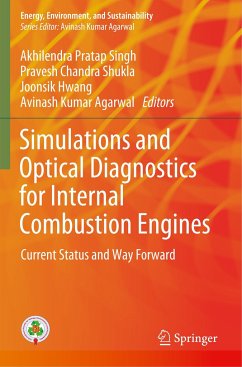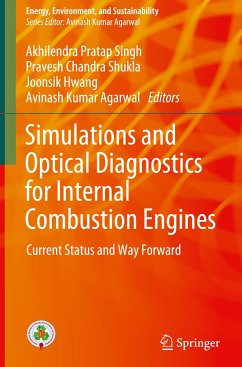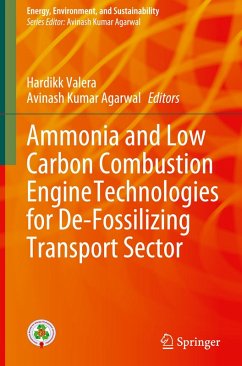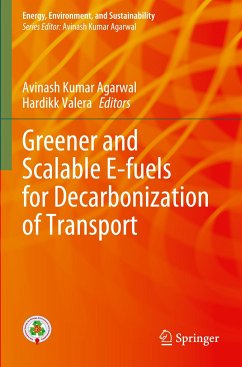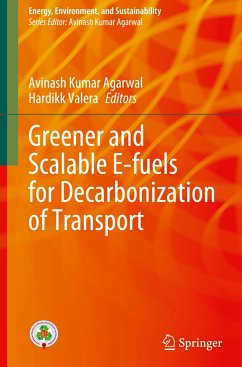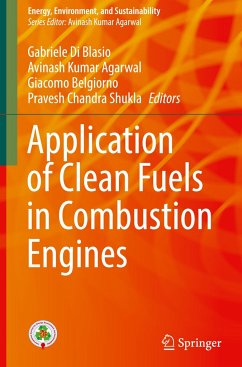Prof. Avinash Kumar Agarwal joined IIT Kanpur in 2001. He worked at the Engine Research Center, UW@Madison, the USA as a Post-Doctoral Fellow (1999 - 2001). His interests are IC engines, combustion, alternate and conventional fuels, lubricating oil tribology, optical diagnostics, laser ignition, HCCI, emissions, and particulate control, 1D and 3D Simulations of engine processes, and large-bore engines. Prof. Agarwal has published 435+ peer-reviewed international journal and conference papers, 70 edited books, 92 books chapters, and 12200+ Scopus and 19000+ Google Scholar citations. He is the associate principal editor of FUEL. He has edited "Handbook of Combustion" (5 Volumes; 3168 pages), published by Wiley VCH, Germany. Prof. Agarwal is a Fellow of SAE (2012), Fellow of ASME (2013), Fellow of ISEES (2015), Fellow of INAE (2015), Fellow of NASI (2018), Fellow of Royal Society of Chemistry (2018), and a Fellow of American Association of Advancement in Science (2020). He is the recipient of several prestigious awards such as Clarivate Analytics India Citation Award-2017 in Engineering and Technology, NASI-Reliance Industries Platinum Jubilee Award-2012; INAE Silver Jubilee Young Engineer Award-2012; Dr. C. V. Raman Young Teachers Award: 2011; SAE Ralph R. Teetor Educational Award -2008; INSA Young Scientist Award-2007; UICT Young Scientist Award-2007; INAE Young Engineer Award-2005. Prof. Agarwal received Prestigious CSIR Shanti Swarup Bhatnagar Award-2016 in Engineering Sciences. Prof. Agarwal is conferred upon Sir J C Bose National Fellowship (2019) by SERB for his outstanding contributions. Prof. Agarwal was a highly cited researcher (2018) and was in the top ten HCR from India among 4000 HCR researchers globally in 22 fields of inquiry. Prof. Antonio García Martínez is an Associate Professor in the Department of Thermal and Reciprocating Engines at the Universitat Politècnica de Valencia, Spain, where he develops his teaching responsibilities in the framework of combustion fundamentals. His research area focuses on low-temperature combustion. he has published more than 140 peer-reviewed articles, and is an active member in different Engineering International Organizations such as SAE or IEES , acting as session organizer, reviewer and author at different events. He received his M.S. and Ph.D. in Mechanical Engineering from the Universitat Politècnica de València, Spain. Prof. Garcia has been a visiting professor at the Combustion Engines division at Lund University, as well as a visiting researcher at RWTH Aachen University, where he developed relevant works on the implementation of advanced combustion systems on CI engines. Mr. Ankur Kalwar is currently a Ph.D. research scholar at Indian Institute of Technology (IIT) Kanpur. He received his Bachelor's and Master's degree in Mechanical Engineering from Lovely Professional University, India in 2016. HisMaster's work focused on developing the liquid desiccant - vapour compression hybrid refrigeration system. His areas of research include gasoline direct injection technology, fuel spray analysis, optical diagnostics, combustion diagnostics, engine emissions measurement, particulate characterization and their control, and alternative fuels. He has authored several book chapters and research articles in international journals and conferences. Mr. Hardikk Valera is pursuing his Ph.D. from Engine Research Laboratory (ERL), Department of Mechanical Engineering, Indian Institute of Technology (IIT) Kanpur. He has completed his M.Tech. and B.Tech. from National Institute of Technology (NIT) Jalandhar, India, and Ganpat University, respectively. His research interests include methanol fuelled SI engines, methanol fuelled CI engines, optical diagnostics, fuel spray characterization and emission control from engines.
